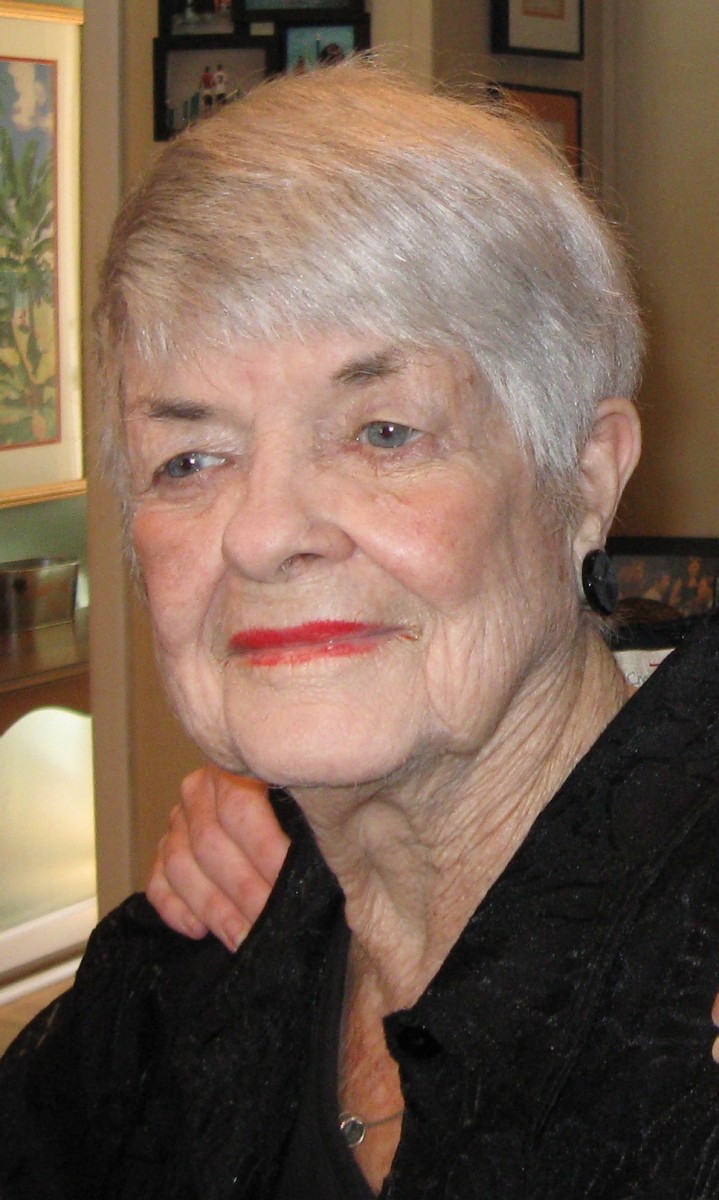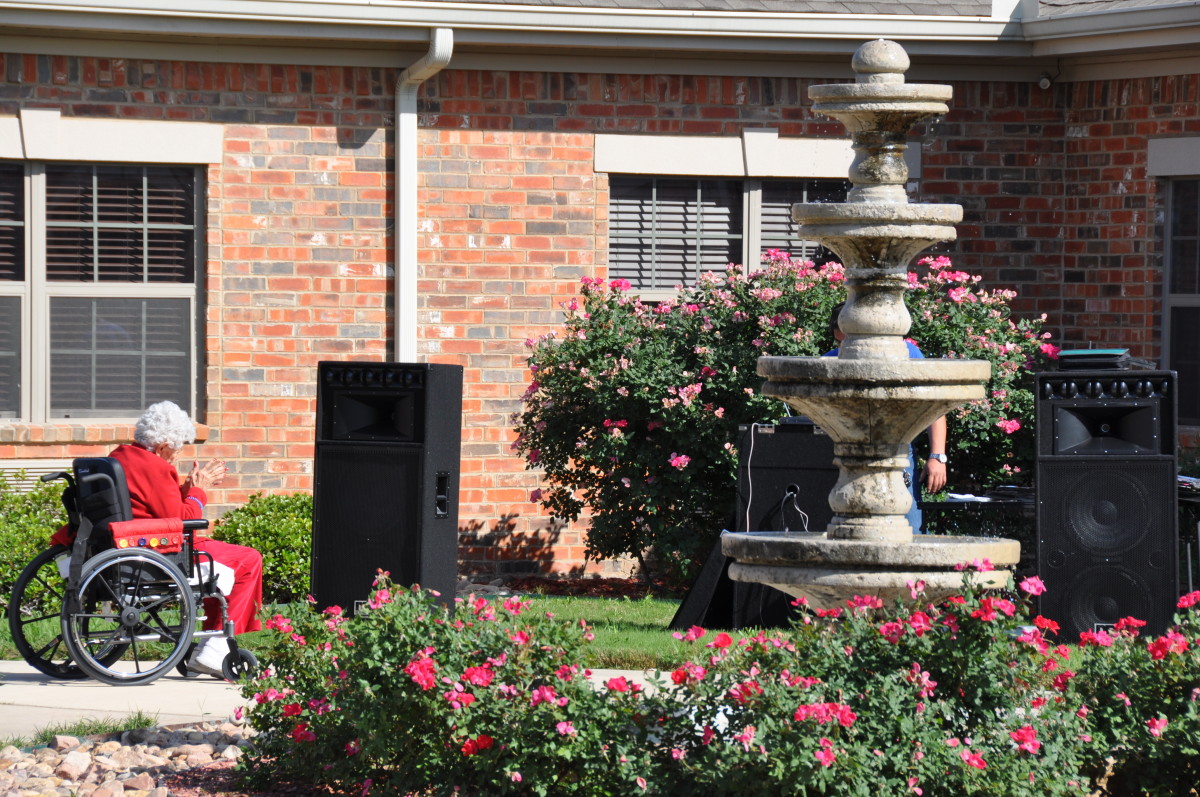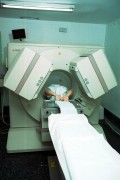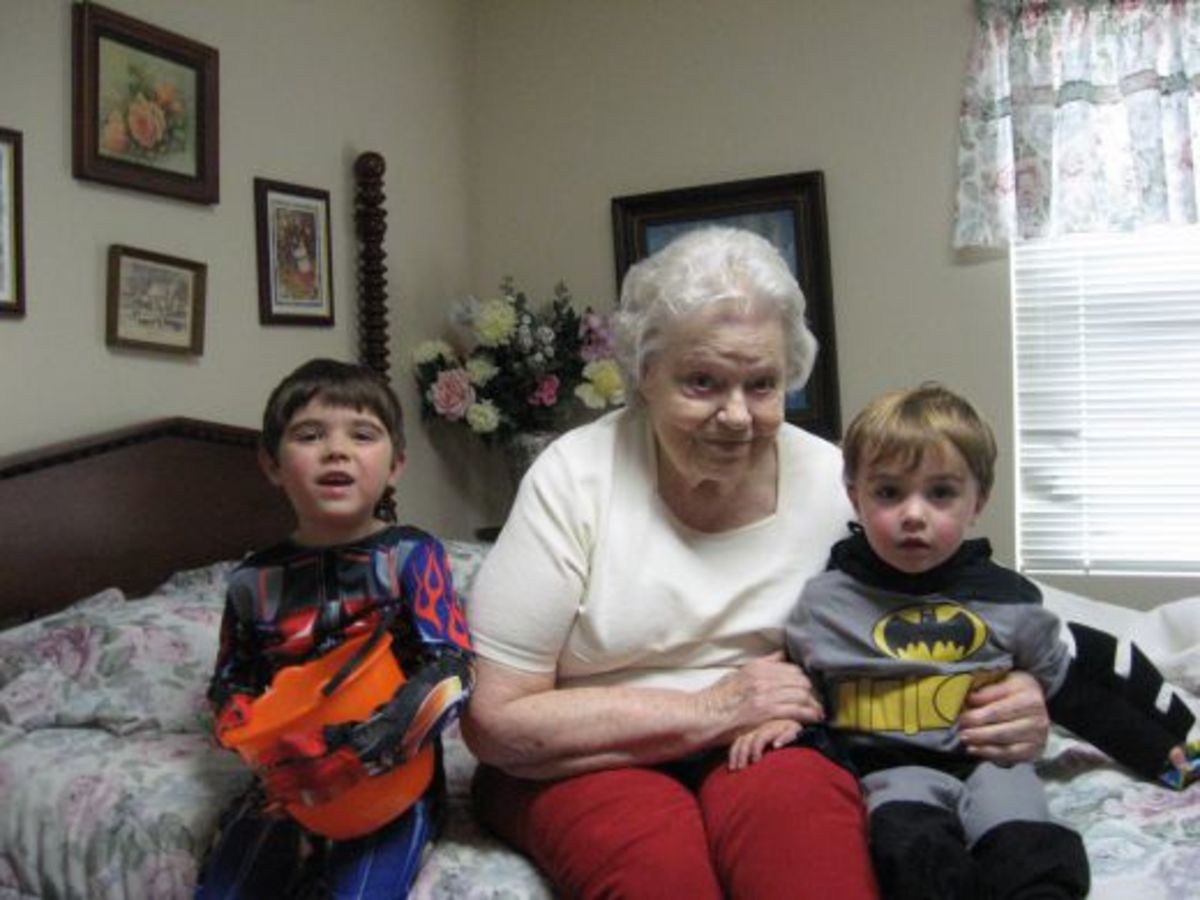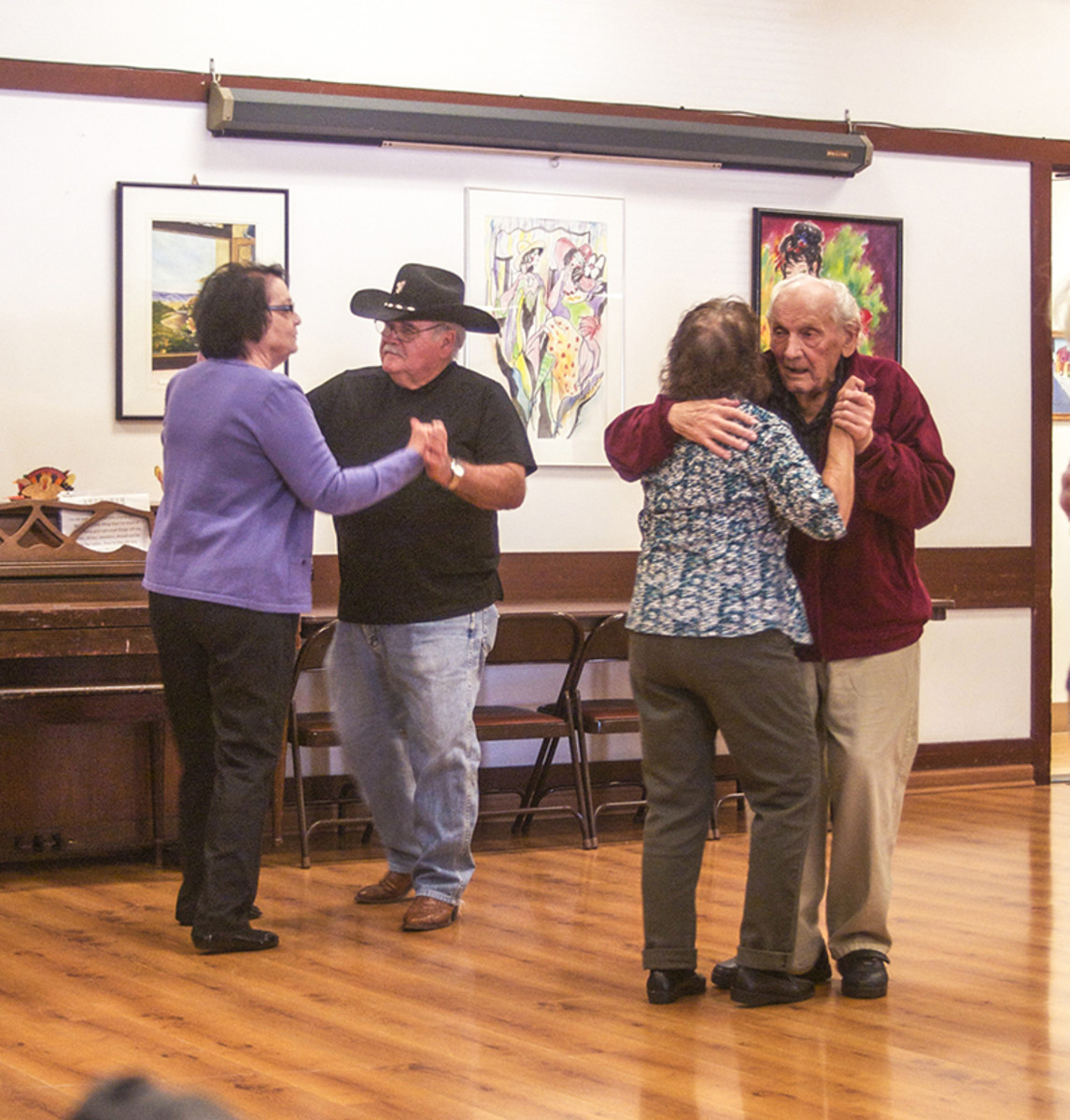Long Term Care For People You Love
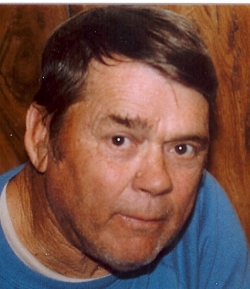
Everything You Need To Know About Long Term Care.
More than 9 million people over the age of 65 will need long-term-care this year. Here you'll learn all you need to know to plan for your family's LTC needs -- everything from needs assessment, options, implementation and everything in-between.
This lens is dedicated to my father who, in 1993 was diagnosed with cancer at the young age of 67 (this picture was taken before he started having symptoms). My family was totally unprepared. The next 8 months was a living hell. I've put together this lens so no family has to go though the fear, anguish, and guilt my family went through.
Not just the fear of losing a loved one, but the fear of not knowing where the money would come from to take care of him; the anguish of not having the time to make the decisions required -- were they the right ones; were they the ones he would have wanted; and the guilt of not having planned in advance.
Please keep checking back as I add new information all the time.
For the latest news on Long Term Care and other senior health issues visit Long Term Care For The Elderly
Have Fun Before It's Too Late
Humor Found Here
My Dad had a great sense of humor and loved a good joke. As he got older, he found humor in everything life threw at him. So, I've added senior jokes throughout the lens. Find the Joke Sections by looking for this guy:

An In-Depth Look The Author Of Senior Long Term Care Choices
"Getting help for your loved one entails gathering and assessing information about the kind and extent of care he or she needs, then finding someone, or some place, to provide that care."
Janet O'Connor has training and experienced both as a nursing assistant/home caregiver and a writer. With a bachelor's degree in liberal arts, she began writing professionally in the field of marketing and advertising, in which she worked for ten years. After a 3-year hiatus in which she was a Peace Corps volunteer in Pakistan and Botswana, she began her second career as a home caregiver.
She completed training for her certification in nursing assistance as well as home health aide. She also completed training in home hospice work. Her 4 months of CNA clinical training was done in a nursing home, and she worked in another nursing home for one and one-half years. She served one year as a live-in caregiver, and has worked as a home caregiver to people with various disabilities and diagnoses since 1997.
Ms. O'Connor has written about a wide variety of health-related subjects, including Acne, Health Insurance, ADHD (Attention Deficit/Hyperactive Disorder), Migraine, Back Pain, Acid Reflux and Long Term Care.
Ms. O'Connor decided to write her long-term care book after helping seniors and others with disabilities struggle with the decisions, finances, and processes involved in finding long-term care alternatives that matched their individual needs. The book is her attempt at making it easier for others to plan these important life decisions.
For more information on the book, visit Long Term Care For The Elderly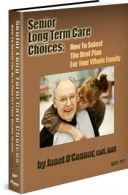
Senior Long Term Care Choices: How To Select The Best Plan For Your Whole Family
MY CHOICE AS: The Most Comprehensive Book On The Market
In my opinion, I think Janet O'Connor's new book, Senior Long Term Care Choices: How To Select The Best Plan For Your Whole Family, is the most comprehensive book on the market. It provides all the information and guidance you will need to get your loved one set up in his or her "personal best" long-term care situation.
Besides up-to-the-minute and meaningful information, you'll find a comprehensive list of resources you can access immediately. What's more, these contacts let you zoom in on your local area programs, facilities and resources. Under some circumstances, solving your loved one's care problem can be a monumental task. With the tools and information in this e-book you'll be able to manage it well and completely. For more information about the author, check out the next section. For more information on this must-have book, visit Senior Long Term Care ChoicesTools For Long Term Care - Useful Online Tools
- Centers for Medicare & Medicaid Services (CMS)
Publications available from CMS include: Choosing Long-Term Care Medicare & You (updated annually) Medicare and Home Health Care Medicare Coverage of Skilled Nursing Facility Care Nursing Homes Guide to Choosing a Nursing Home - Eldercare Locator
The Eldercare Locator is a public service of the U.S. Administration on Aging. It links older Americans and their caregivers with state and local agencies and community-based organizations that serve elders and their caregivers.

Making The Nursing Home Decision
A Tough Decision That Sometimes Has To Be Made
Taking care of an aging person in the home is not easy. Most elders require specialized care, sometimes 24 hours every day. The attention and care differs by individual. Some may need help taking their medications, going to the bathroom, bathing, and other daily activities.
This task and responsibility can be overwhelming and necessitate placing a loved one in a nursing home. That decision can be extremely difficult.
There is nothing to be ashamed of in putting your loved one in a nursing home. Sometimes it is necessary in order for him to get the care he needs. However, you need to be informed on what a nursing home is before making that decision.
Help For Daily Tasks
A nursing home is essentially a place for people who need assistance accomplishing daily tasks -- help with meals, with caring for their bodies, or entertaining themselves. Nursing homes assists individuals with their personal needs. At their best, a nursing home staff knows what your loved ones want and is ready to give them the attention and care they need.Selecting a Nursing Home
Making sure the home is right for your loved one
A nursing home has facilities that people need to appreciate the beauty of life while they are preparing to go to the world beyond. Nursing homes come in different sizes. The number of beds in a particular nursing home can range from approximately 25 to 500; the average number of beds per facility across America is about 102.
Finding a Nursing Home
Nursing homes are sometimes located within a hospital or medical center as separate skilled nursing units. More often, nursing homes are distinct facilities separate from hospitals. Private individuals, for-profit companies, or not-for-profit entities may own nursing homes.The need for a nursing home is often defined by an individual's need for 24-hour assistance. This assistance does not necessarily mean an individual needs a nurse to watch over them while they sleep, but rather that they might need help getting to the lavatory in the middle of the night, or a reminder to take medication in the morning.
Make Sure You've Made a Good Choice
A nursing home can be the right choice if your loved one is in need of consistent, reliable medical attention and is unable to care for himself.It is vital that you select a nursing home with a superior reputation, and one that you can be supremely confident for your loved one's care.
JOKE: Seniors Exercising
One Of My Favorite Jokes Because I've Been There
I feel like my body has gotten totally out of shape, so I got my doctor's permission to join a fitness club and start exercising. I decided to take an aerobics class for seniors.
I bent, twisted, gyrated, jumped up and down, and perspired for an hour. But, by the time I got my leotards on, the class was over.
Note from Frankie: Been there, done that!

Plan For Your Future Today - Then Rest Easy
Denial can cause unintentional damage
"We cherish independence, and are therefore often blind to indications that help is needed. Though unconscious and unintentional, this kind of denial is persistent, and can cost us or our loved ones irreparable damage before help is finally sought."
- Janet O'Connor
Some Terms You Should Know
Long Term Care Terms
Durable Power of Attorney for Finances A Document that appoints someone to make financial decisions on your behalf. If it is already in effect when you become unable to manage your affairs, it continues, or it spring into effect at that time.
Durable Power of Attorney for Health Care This is also known as a health care proxy. It is a legal document which names an agent to make health car decisions on behalf of someone who can no longer make decisions for himself.
Guardianship A legal process where the court appoints a person to manage the property and affairs of someone unable to act on her own behalf.
Living will This document, also called a health-care directive, describes the kinds of care a person does and does not want if she is nearing the end of life. Usually this pertains to measures taken to sustaining life.
Activities of Daily Living (ADL) These include such things as dressing, bathing, eating, grooming, use of the toilet.
Adult Day Care These are facilities that provide daytime care for older adults. They offer help for safety, socialization and recreation.
Assisted living residence Housing for people who can need some help living alone but do not require skilled nursing care.
Home health care Services provided in the home by home health aides.
Hospice care A type of care offered by hospitals, long term care facilities, and some hospice organizations for terminally ill patients and their families. They emphasize pain management and control of symptoms rather than attempting a cure.
Respite care Care given in place of a caregiver temporarily to give the caregiver a rest and personal time.
Medications - How To Stay On Track
A serious concern for older adults and for the caregivers that assist them is adherence to medication regimens. Here are some tips to help seniors stay on track:
At The Doctor's Office:
1. Get the doctor to give you specific instructions on the medication, dosage, and how to take it IN WRITING.
2. Ask about side-affects that can be expected. What side-affect would warrant stopping the medication and calling or seeing the Doctor?
At The Pharmacy:
1. Have the pharmacist check for interactions with other medications already being taken.
At Home:
1. Keep a list of medicines and the exact directions for taking them. Do they take them with or without food? A.M. or P.M? How many?
2. Use a medicine holder to organize your meds. There are many sizes and styles available. Pick one that works best for the person.
3. Keep a checklist of the medications that can be checked off as the meds are taken.
4. If you get a 30 day supply, when you are down to 1 weeks worth of medication, call in to reorder the prescription. If you get a 90 day supply, call in your order when you are down to 20 days.
FREE Medications -- How To Get
Find Out If You Can Get Free Medications Here
Drug companies frequently give doctors free samples of their medicines. So ask for freebies for before your doctor writes a prescription for your loved one. If they can't give you enough for the long term, they can at least give you enough to sample the medication to see if it even works!
DISCOUNTED Medications -- How To Get
How To Get A Lower Price On Your Meds
Doctor Recommendations:
Ask your doctor if a generic drug will work just as well since they usually cost a lot less.
Shop Around:
Call different pharmacies as their prices for particular drugs will vary. You may end up getting drugs from 2 or 3 different pharmacies depending on the drug, but it could be worth it!
Pharmacy Discounts:
Many pharmacies will give discounts for cash payments to people who are uninsured or underinsured.
Online Ordering:
Many insurance programs allow you to order your meds online. Usually you have to order a 90 days supply, but the savings is worth it.
DISCOUNTED Medicines -- Where To Get
Discover Who Offers Discounts For Repeated Medications Here
If you or a loved one get repeats on medicines check out the following groups for discounts of up to 30%:
American Association of Retired Persons (AARP)
601 E. St NW
Washington, DC 20049
800-424-3410
Merck-Medco Managed Care, LLC 800-247-1003
American Association of Retired Persons (AARP)
Medi-Mail
800-331-922-3444
800-922-3444
Preferred Prescription Plan
800-881-6325

Holidays: Checking Your Loved Ones
How Are Your Aging Parents doing?
Assess Your Parents This Holiday Season
This holiday season, when you're spending time with your parents,be sure to be sensitive to their needs. Have their abilities changed since this time last year? Get beyond their and your own denial of their aging, and take a good look.
Here are some things to look for to see if your parent's need more help.
* Was there a noticeable decline in physical abilities?
* Did they seem less stable on their feet or did they recently fall?
* Was there a noticeable a decline in short-term memory?
* Did you find stacks of unopened mail or cancellation notices caused by unpaid bills?
* Did your parent seem unkept? How about their home?or their home seem unusually unkempt?
* Did the refrigerator have good, nutritious foods or enough food?
* Has your parent lost weight?
* If they have a pet, does he seem well taken care of?
Each of these can be a sign that something is wrong. If it nags you or something doesn't seem right, it probably isn't. Sooner or later your parents will need your help and you need to keep an eye out for when those changes begin.
Check out the FREE Assessment Form in the next module. Take it with you to help you evaluate them (and to keep a record of the results). It could save your parents much grief and maybe even their life.

FREE Care Needs Accessment Form And Scoring Sheet
What Kind Of Care Does Your Loved One Need Right Now?
What kind of care does your loved one need right now?
Janet O'Connor Senior Long-Term Care has a great assessment form that she has given me permission to give out. It's a simple check list where you can evaluate the care needs of yourself or a loved one.
Then there's a scoring sheet that tells you, based on your score, what type of care Janet recommends at this time. Janet recommends redoing the evaluation every 3 months so you can see the progression of care needs and plan for the future better.
For a FREE copy of the assessment and scoring system (pdf file), click FREE Assessement FormAlzheimer's Care
Non-Professional Care
Alzheimer's is a progressive disease which is life threatening to the people it affects and unfortunately, this terrible disease can destroy the lives of many more people that those it directly affects. Witnessing the slow deterioration of a loved one while also doing your best to take care of them can be too much for many. Therefore, in many ways close friends, relatives and colleagues can also become victim of this insidious syndrome. Realistically, only a relative or partner who provides Alzheimer's care, really knows how difficult that can be.
During the preliminary stages of this disease most people are able to provide a satisfactory level of care without any serious problems. However, things will gradually become significantly worse until providing a satisfactory level of care becomes impossible for most people. Nevertheless, until then there are lots of steps a caregiver can take to make things easier for the person with Alzheimer's and for themselves.
Reducing frustrations and stress can be really important and people with this disease are usually frustrated enough, primarily because of their inability to do all the things they used to without a great deal of effort. Also, people suffering from Alzheimer's will often change their opinions, for example, they may dislike the foods they used to like, or they may want to wear the same outfit every day. These situations can prove difficult for those trying to provide care.
If you are considering providing that care yourself, you should be prepared for many difficult situations. As time goes by, the disease will get stronger and the patient will get weaker and weaker.
The risk of self-injury also increases as the disease progresses. So, another important point to consider is whether the environment surrounding the person is a safe one. To provide Alzheimer's care, a person needs to be really confident that they can manage. Most often, the best possible option is to situate the sufferer where professionals can take good care of them and provide all the essential care that person needs.
Maxine cartoon book on Amazon - A must read!
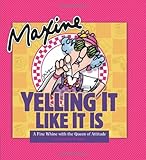
The Essential Herb-Drug-Vitamin Interaction Guide - The Safe Way to Use Medications and Supplements Together

Over The Counter Drugs-- WARNING
WARNING:
Never take more than 1 medicine
with the same active ingredient
unless instructed to do so by your doctor.
Medication Safety Tips
Things You Should Do
Medication Safety
Medication is supposed to help you, but problems can happen if you:1. take too much.
2. mix incompatible medications together.
3. take the medication incorrectly (i.e. too often, too much, not enough).
Things you should tell the doctor about your medications.
Your doctor should have in your file the following information:
1. Tell them all of the medications you are taking.
2. Tell them about all of the vitamins, herbal and dietary supplements.
3. Tell them about any allergies you have to particular drugs.
4. Remind them of any other medical condition you have.
Patient Prescription Assistance Programs
What Are They And How They Can Help You
Patient Prescription Assistance Programs or Patient Assistance Programs (PAP's) are programs offered by major pharmaceutical companies which disburse prescription drugs in the United States. In essence, these programs offer free brand name drugs to people who do not have adequate healthcare coverage. Each PAP has its own set of policies and guidelines for the free prescription drugs, i.e. Merck and Pfizer each have separate distinct plans. Because each pharmaceutical company has different procedures for acceptance, it is extremely difficult for the average American citizen to complete the required paperwork with a high degree of accuracy. Because of the 'paperwork hassle,' many American citizens fail to qualify for the medication. That is where Rx Aid, Inc. becomes involved.
Rx Aid has a very knowledgeable staff that understands each pharmaceutical company's guidelines and knows how to work with the patient, the doctor, and the pharmacy.
Check them out at RxAid.us
Clinical Drug Trials No Longer Trade Secret
Where To Find Information On Drug Trials
Clinical drug trials are no longer considered "trade secrets". Congress has just ruled that drug companies must post the results of clinical trials on a public database within 1 year of completion. The database is: ClinicalTrials.
Drug companies can still take up to 3 years to post summaries for the general public. However, since the results will be on the database, the public can see them. AND, independent experts can review and evaluate the trial results to keep doctors and the public better informed.
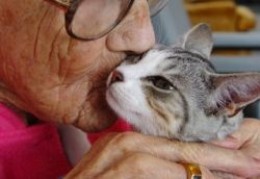
Meals on Wheels for Senior's Pets
How can a senior get food for their pet?
One of the biggest worries for seniors is having enough money to feed their beloved animals - be it dog or cat. Meals on Wheels Association of America (MOWAA) has created a new program to help them called, We All Love Our Pets (WALOP).
The program united Meals On Wheels programs across the U.S. to make food for pets part of the delivery of the meals for seniors.
Foir more information click WALOP/Meals on Wheels
Magazines For Seniors And Baby Boomers - Get A Magazine Geared Toward The Senior In Your Life
- GRANDtimes.com Senior Magazine & Portal Site
This weekly magazine for active older adults examines life's opportunities and challenges. - Senior Living : Retirement : Elderly Health : Today's Senior Magazine
Today's magazine for today's senior! Today's Senior Magazine is for the mature adult who enjoys life. An individual who has a fondness for the past but ... - Welcome to Senior Magazine Online!
Welcome to Senior Magazine™ Online! Northern California Edition. JUNE 2007. DeltaRiverCruise.com · Site Meter. - Senior One Source: An online magazine for Seniors
Referral service and magazine designed to help seniors achieve a healthier life. - AARP The Magazine
AARP The Magazine, the world’s largest circulation magazine, serves the needs and ... Go Online to Save • Longevity Myths Debunked • Senior Spelling Bee ... - Senior Times Magazine
We are hard at work on a fantastic new website! It will feature many of the same great stories and columns as the printed version, as well as a variety of ... - Senior Advocate Magazine Index
Senior Advocate Magazine. Articles from our Library. Advance directives From the August/September, 2005 issue. Advocate's new $109 cardiovascular/stroke ...
Have A Family Conversation About Long Term Care
The earlier to talk with your parents and evaluate their situation the better. When you do it early, you can plan for any situation that might arise.
Be sure to involve your parents in this conversation. Doing it before something major happens, makes it easier for your parents to talk about long term care and they will make better decisions since there is less emotion involved at that time. When a life-altering event occurs, the stress level is higher and denial can set in.
Below is a free assessment form that I urge you get immediately. You and several members of the family can fill out the 1-page form now so you can have a base-level to compare your parent(s) to as they begin to need care.
Having your parent fill out the assessment form now is good too. Then when something happens that changes their situation, they can take it again and you can compare their answers to the new one.
FREE Senior Care Documents Guide
7 documents all senior should have
You can get a FREE Senior Care Documents Guide, which explains and organizes the seven most important senior care documents.
Most families are missing at least one of the most critical senior care documents. The Senior Care Documents Guide helps simplify the care of aging loved ones by explaining why and how each senior care document is used.
The free Senior Care Documents Guide includes instructions and usable sample documents for:
* Durable Power of Attorney
* Advance Directives
* Declaration of Guardian
* Medical Power of Attorney
* Out of Hospital Do Not Resuscitate
* Appointment of Agent
* Physician's Statement of Incapacity
The free guide also includes a helpful glossary of senior care terms and a checklist to help families keep their documents in order. It can be downloaded at Senior Care Documents.
Laughing keeps you young
Laugh and stay young!
You don't stop laughing because you grow old,
You grow old because you stop laughing!
Fun Stuff -- Jokes About Seniors And Aging
Senior Jokes To Lighten The Mood
Even though the issues of Long Term Care Planning is serious, there no reason we can't have a little fun too. Here are some jokes I found about Seniors and aging. Many of you will be able to relate -- I know I do!
I've put jokes throughout the lens as well. Enjoy, Frankie
1. Just before the funeral services, the undertaker came up to the very elderly
widow and asked, "How old was your husband?" "98," she replied. "Two
years older than me." "So you're 96," the undertaker commented. She
responded, "Hardly worth going home, is it?
2. Reporters interviewing a 104-year-old woman: "And what do you think is the best thing about being 104?" the reporter asked. She simply replied, "No peer pressure."
3. The nice thing about being senile is you can hide your own Easter eggs.
FREE Medical Care -- Where To Get
You May Be Able To Get FREE Medical Care
Every year, over 150,000 patients receive medical care from some of the BEST doctors in the world for FREE. Why? Because medical researchers get millions of dollars to use in the study of diseases and ailments and if your condition is one of the ones being studied, you may qualify for free treatment. To learn more, contact the Clinical Center at the address below:
Clinical Center
National Institutes of Health
Building 10, Room 1C255
10 Center Dr
MSC 1170
Bethesda, MD 20892-1170
301-496-4891
Hot Tips On How To Beat The Heat
7 Tips to Beat the Heat
Heat can be dangerous. The elderly and disable people are at high risk during hot weather. Very high temperatures can damage the brain and other vital organs.
The ability to regulate temperature is limited by some conditions including old age, obesity, fever, dehydration, heart disease poor circulartion, sunburn and drug and alcohol use.
Here are 7 tips to help you help your loved ones beat the heat:
1. Dress for the heat. Make sure to wear light weight and light colored clothes.
2. Drink plenty of water. Drink water throughout the day -- even if you are not thirsty. By the time you are thirsty, it's too late, you are already dehydrated.
3. Eat small meals often. And, avoid high protein foods, which increase metabolic heat.
4. Stay indoors whenever possible.
5. Avoid strenuous activity. Slow down, don't be in a hurry.
6. Check on neighbors. If you have elderly or disabled neighbors, check on them. Better yet, form a buddy system to monitor those at high risk.
7. Learn First Aid and CPR.
For more information on heat safety, contact your local Red Cross or visit their website: Red Cross
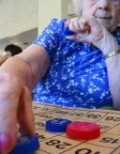
Assisted Living Facilites Vs. Nursing Homes
Which Facility Will Serve Your Needs Best?
An alternative to a nursing home is an Assisted Living Facility (ALF). An ALF's purpose is to bridge the gap between independent living and nursing homes. They are for people needing assistance with Activities of Daily Living (ADLs), but who wish to live as independently as possible for as long as possible.
Level of Freedom
Assisted living facilities offer help with ADLs such as eating, bathing, dressing, laundry, housekeeping, and medication assistance. Some also have centers for medical care; however, the care offered may not be as intensive or available to residents as the care offered at a nursing home.
When deciding between ALF and a Nursing Home consider the following factors:
Cost: ALF can be costly because individuals live in apartment-like settings whereas in Nursing homes the elderly live in a more communal space with little private space.
Medicare is frequently available for nursing home stays but may not be for an ALF.
Facilities: ALF are focused on individuals. Nursing homes are focused on the collective group.
Place: ALF is a location for a few particular aged at a time but a nursing home houses a lot of patients. ALF house an individual who is provided with all the help and assistance he or she needs, while the nursing home provides far less individual care.
Nursing homes are designed to care for people who have a number of health care requirements, and cannot care for themselves. ALFs are designed to assist elderly persons who can basically care for a lot of their personal needs themselves.
Skilled nursing care is not usually available except on an as-needed basis. A nursing home is more like a hospital environment and provides full-scale, skilled nursing care. If your loved one is now and then confused or experiencing memory problems, assisted living can be the answer. If they have a debilitating disease or condition, they might need a nursing home.
Consider Your Loved One's Welfare
Although there are many factors to consider, your main concern should be the well being of your loved one.

Who To Turn To If You Suspect Nursing Home Abuse
NursingHomeAdvocates.com Launched
Protecting Loved Ones from Nursing Home Abuse
Solomon & Relihan, well recognized for their experience and knowledge in nursing home litigation, PC has recently launched NursingHomeAdvocates.com. Nursing Home Advocates is designed and geared to assist both family members of nursing home residents who have been neglected and those who suspect abuse of a loved one in a nursing home facility.
In the United States alone, nursing home malpractice has become a significant problem with growing numbers. Investigations done by the US Government have shown that approximately 30% of nursing home facilities in the US have neglected or abused their patients, resulting in significant harm. Studies also show that nursing home malpractice has resulted in over 4,000 deaths due to malnutrition, dehydration, and bedsores.
For more information, visit Nursing Home Advocates
Have Your Loved One Create A Memory For You And Others - Memories last a lifetime

Geneology Gifts -- Put Your Family History Together - Great Senior Gift Ideas
DISCOUNTED Medical Care -- How To Get
How To Pay Less For Your Medical Care
Doctor Discounts:
Ask your doctor before treatment begins if s/he will give you a discount if you pay cash or a credit card at the time of the visit. Statistics have shown that as many as 60% of doctors will give you a discount.
Hospital Discounts:
Many hospitals offer discounts for payments received at time of visit and another for payment received within 10 days of visit. These discounts would apply to Emergency Room visits too. So, check with your hospital before your next visit.
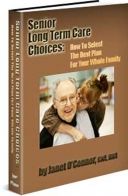
You Should Read This Book Before It's Too Late!
Most Comprehensive Long Term Care Book On The Market
Senior Long Term Care Choices: How To Select The Best Plan For Your Whole Family, by Janet O'Connor. It provides all the information and guidance you will need to get your loved one set up in his or her "personal best" long-term care situation.
With the tools and information in this e-book you'll be able to manage it well and completely. For more information on this must-have book, visit Long Term Care For The ElderlyJOKE: When The Mind Starts To Go
JOKE: When The Mind Starts To Go
My memory's not as sharp as it used to be. Also, my memory's not as sharp as it used to be.
Note from Frankie: Don't know if you noticed, but I did make the module title and subtitle the exact same on purpose. It seemed approprite given the joke!
Helpful Resources - Helpful Organizations (Government & Nonprofits)
- health care proxy forms on Consorzioeste!
There are various trusts, proxy 's, vulnerable assets, long term health care ... - Long Term Care Ombudsman Washington State
Washington State Long-Term Care Ombudsman Program promotes the interests, well-being, and rights of long-term care facility residents. - Board on Aging and Long Term Care Home Page
Welcome to the State of Wisconsin BOARD ON AGING & LONG TERM CARE. Home · Ombudsman Program · Medigap Program (SHIP) · Volunteer Ombudsman Program ... - Long Term Care | SEIU.org
The Older Women's League has released a special Mother's Day report on Women and Long Term Care. The report outlines the coming "care gap" between the ... - Paying for Long Term Care
Special Care Programs · A Final Note. View a printer-friendly version (PDF; 108 KB; Adobe Acrobat Reader required). Understanding Long Term Care Insurance ... - National Long Term Care Survey (NLTCS) Home Page
The National Long Term Care Survey is funded through a Cooperative Agreement (2 U01 AG0007198) between the National Institute on Aging (NIA) and Duke ... - National Commission For Quality Long-Term Care
Long-term care in America is getting better,. Roadmap for Reform ... How do we pay for long-term care and make sure all Americans have choices? ... - Long Term Care Resources - Nursing Homes in the United States
Directory of all United States Nursing Homes, provides information regarding Medicare, Medicaid, Advance Directives, DNR, Resident Rights, Hospice. - office of disability aging and long term care
Estimating the Uninsured (i.e. Those Without Health Insurance) - CaringBridge - Free Patient Websites Connect Loved Ones During Serious Health Events.
Free, personalized patient information websites for anyone dealing with cancer, a premature birth or serious health event. Private online journal helps you tell your story.
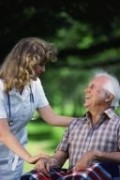
Don't Put Off Those Hard Decisions
"Sometimes putting a loved one into a nursing home is the only way to keep him or her safe."
by Janet O'Connor
Yoga For People Over 50


Water Exercise
A Great Exercise For Seniors
Exercising in the water is great for seniors, overweight people, and people with disabilities. In fact it's good for everyone.
When in water up to your waist, the body bears only 50% of it's weight. In neck deep water, the load is only 10%.
Swimming is great, but if you can't swim, just walking in water is great. Try it at waist level to begin with and increase your laps gradually. Later, walk in water that is chest high for the most benefit.
Many communities have pools or join a spa.
Exercise Books For Seniors
The 4 Stages Of LIfe
THE FOUR STAGES OF LIFE:
1) You believe in Santa Claus.
2) You don't believe in Santa Claus.
3) You are Santa Claus.
4) You look like Santa Claus.
Long Term Care Insurance - Why And Where To Get It
Insurance You Should Check Out
Long term care (LTC) is needed when you can no longer perform activities of daily living by yourself, such as eating, bathing or getting dressed. It is also the kind of care you would need if you had something as severe as Alzheimer's disease. As mentioned previously, care can be received in a variety of settings: your own home, assisted living facilities, nursing homes, adult day care centers or hospice facilities.
"More than 80% of all people receiving long term care assistance are not in nursing homes."
Long term care can be covered completely or in part by long term care insurance. Many plans let you choose the amount of the coverage you want, as well as how and where you want to use your benefits. A comprehensive plan includes benefits for all levels of care, custodial to skilled.
What LTC is NOT
(1) LTC is NOT the type of care that you receive in the hospital or your doctor's office.
(2) LTC is NOT the medical care you need to get well from a sickness or an injury.
(3) LTC is NOT short-term rehabilitation from an accident.
(4) LTC is NOT recuperation from surgery.
LTC Insurance Information
Now is the time to gather information about LTC and develop a plan to fit your needs. Find out about your options and make a decision that best suits your goals and budget. LTC Insurance has become a necessity not a luxury.
Growing Old Is NOT For Sissies.
-Bette Davis
JOKE: It's All In One's Perspective
I've sure gotten old! I've had two bypass surgeries, a hip replacement, new knees. Fought prostate cancer and diabetes. I'm half blind, can't hear anything quieter than a jet engine, take 40 different medications that make me dizzy, winded, and subject to blackouts. Have bouts with dementia. Have poor circulation; hardly feel my hands and feet anymore. Can't remember if I'm 85 or 92. Have lost all my friends. But, thank God, I still have my driver's license.
Want To Link To This Lens? Here's How
WANT TO LINK TO THIS PAGE?
Here's the HTML code to copy and paste:
Long Term Care For People You Love
Copyright
This work is covered by copyright and can not be reprinted
in any matter (physical or digital) without prior written consent.
Copyright 2008-2013 Frankie Kangas All rights reserved.
Let me know what you found useful and what you would like to have more of. I aim to please. Like I said in my introduction, I don't want anyone else to go through what my family did in '93.












